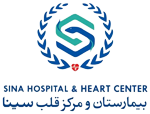Patient Rights Charter in Iran
Each member of society is committed to preserving and respecting the dignity of human beings. This is of particular importance in the context of disease. According to the constitution, paying attention to high human dignity is one of the basic principles of the Islamic Republic, and the government is obliged to provide health services for each individual in the country. Accordingly, the provision of health services should be fair and based on respect for the rights and respect for the human dignity of patients. This charter is based on high human values and based on Islamic and Iranian culture and on the basis of equal inherent dignity of all recipients of health services and with the aim of maintaining, promoting and strengthening the human relationship between providers and recipients of health services.

- Values are cultural and religious beliefs
- The information should be provided to the patient in a satisfactory and adequate manner
- The patient's right to freely choose and decide on health services must be respected
- The provision of health services should be based on respect for patient privacy (privacy) and respect for the principle of confidentiality.
- Access to an efficient patient rights grievance system
- Values are cultural and religious beliefs
- Be based on honesty, fairness, courtesy and kindness
- Be free from any discrimination including ethnic, cultural, religious, disease and gender
- Be based on current knowledge
- Be based on the superiority of the patient's interests
- The distribution of health resources should be based on justice and patients' treatment priorities
- Based on the coordination of care elements including prevention, diagnosis, treatment and rehabilitation
- With the provision of all basic and necessary welfare facilities and away from the imposition of pain and unnecessary restrictions
- Pay special attention to the rights of vulnerable groups in society, including children, pregnant women, the elderly, the mentally ill, prisoners, the mentally and physically disabled, and the homeless.
- Be patient as soon as possible and with respect to time
- Considering variables such as language, age and gender of service recipients
- In urgent and urgent care (emergency), regardless of its cost. In non-urgent cases (elective) is defined according to the criteria
- In urgent and emergency care (emergency), if it is not possible to provide appropriate services, it is necessary to provide the necessary services after the provision of necessary services and explanations, the transfer of the patient to the equipped unit.
- In the final stages of life, when the patient's condition is irreversible and the patient's death is imminent, it should be presented with the aim of maintaining his comfort. The purpose of reducing the pain and suffering of the patient is to pay attention to the psychological, social, spiritual and emotional needs of him and his family at the time of mourning. The dying patient has the right to be with the person he wants in the last moments of his life.
A. The content of the information should include the following:
- Provisions of the Charter of Patients' Rights at the time of admission
- Predictable criteria and costs of the hospital, including medical and non-medical services, and insurance criteria and introduction of support systems at the time of admission
- Name, responsibility and professional rank of the members of the medical team responsible for providing care, including doctors, nurses and students, and their professional relationship with each other
- Diagnostic and therapeutic methods and strengths and weaknesses of each method and its possible complications, diagnosis, prognosis and its complications, as well as all the information influencing the patient decision-making process.
- How to access the treating physician and the main members of the medical team during
- All actions that have a research nature
- Provide the necessary training to continue treatment
B. How the information is provided should be as follows:
1. Information should be provided at the appropriate time and in accordance with the patient's condition, including anxiety and pain, and his or her personal characteristics, including language, education, and comprehension, unless:
* Delay in starting treatment by providing the above information may cause harm to the patient; (In this case, the transfer of information after the necessary action, should be done at the first appropriate time
* The patient, despite being aware of the right to receive information, should refuse to do so, in which case the patient's wishes should be respected, unless the patient's lack of information puts him or her or others at serious risk.
2. The patient can access all the information recorded in his / her clinical file and receive a picture of it and request the correction of the errors contained in it.
A. The scope of selection and decision-making is as follows:
- Selection of the treating physician and the center providing health services within the framework of the criteria
- Selection and consultation of the second physician as a consultant
- Participation or non-participation in any research, with the assurance that his decision will not affect the continuity and manner of receiving health services
- Accepting or rejecting the proposed treatments after being aware of the possible side effects of accepting or rejecting it, except in cases of suicide or cases where refusing to treat another person is in serious danger
- Announcing the patient's previous opinion on future treatment measures when the patient has the capacity to make decisions and as a guide to medical measures in the absence of decision-making capacity in accordance with legal standards should be considered by health care providers and decision-makers to replace the patient.
B. Selection and decision-making conditions include the following:
- The patient's choice and decision-making must be freely and consciously based on the receipt of sufficient and comprehensive information (referred to in paragraph 2).
- After providing the information, the patient should be given the necessary and sufficient time to make a decision and selection
- Observance of the principle of confidentiality regarding all patient information is mandatory, unless otherwise provided by law.
- The patient's privacy must be respected at all stages of care, both diagnostic and therapeutic. For this purpose, it is necessary to provide all the necessary facilities to ensure the privacy of the patient.
- Only the patient and group therapy and authorized persons can access the information by the patient and persons who are considered authorized by law.
- The patient has the right to have a trusted person with him in the diagnostic process, including examinations. Accompanying one of the child's parents in all stages of treatment is the child's right, unless it is contrary to medical requirements.
- Every patient has the right to complain to the competent authorities in the event of a violation of his or her rights, which is the subject of this Charter, without compromising the quality of health services received.
- Patients have the right to be informed about the proceedings and the outcome of their complaint
- Damage caused by the error of health care providers must be compensated as soon as possible after review and proof in accordance with the regulations.

In the implementation of the provisions of this charter, if the patient does not have the capacity to make decisions for any reason, the exercise of all the rights of the patient mentioned in this charter will be the responsibility of the alternative legal decision maker. However, if the alternative decision maker, contrary to the physician's opinion, obstructs the patient's treatment, the physician can appeal the decision through the relevant authorities. If a patient who does not have sufficient capacity to make decisions but can make reasonable decisions as part of the treatment process, his or her decision should be respected.

 فارسی
فارسی  العربية
العربية 
